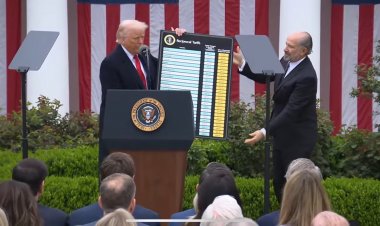Govt decides to resort to ECA to rein in edible oil prices: those in the trade will have to disclose their stocks
The central government has decided to resort to the same ECA, 1955, to rein in the unbridled edible oil prices that it had sought to replace under the three new farm laws, rendering the provisions of stock limits and stock monitoring virtually impossible. Invoking the Act, the provision of declaring the stocks of edible oils and oilseeds is being implemented and state governments have been instructed to take the necessary steps. In a letter written on September 8, 2021, the Economic Adviser to the Ministry of Consumer Affairs, Food and Public Distribution has asked the chief secretaries and administrators of all the states and UTs respectively to take this step.

The central government has decided to resort to the same Essential Commodities Act (ECA), 1955, to rein in the unbridled edible oil prices that it had sought to replace under the three new farm laws, rendering the provisions of stock limits and stock monitoring virtually impossible. Invoking the Act, the provision of declaring the stocks of edible oils and oilseeds is being implemented and state governments have been instructed to take the necessary steps. In a letter written on September 8, 2021, the Economic Adviser to the Ministry of Consumer Affairs, Food and Public Distribution has asked the chief secretaries and administrators of all the states and Union territories (UTs) respectively to take this step. Only a few months ago, the government had resorted to the same law to rein in the prices of pulses and imposed stock limits.
The government says that despite a reduction in customs duty on edible oil imports, prices are not coming down and the real reason for this lies in hoarding. Therefore, in order to rein in hoarding, the businessmen, traders and processing units will have to disclose their stocks under the ECA. This will be monitored by the state governments, who have been authorized to do so under the ECA.
The writer of the letter says that she has been instructed that there is a provision under the ECA to make all essential commodities available to the common man at fair prices. But recently there has been a massive hike in edible oil prices despite the government’s decision to reduce the import duty on edible oils. The reason for this may be hoarding by the stockists.
The provisions of the ECA authorize the government to seek information on stocks. So, the states should monitor the stocks of edible oils and oilseeds and keep an eye on their prices. All edible oils and oilseeds businessmen, producers, processors and importers will have to disclose their stocks. The states are being given the supervision rights under the central order of the ECA issued on June 9, 1978. Besides, the letter says that the states should keep a watch on these commodities on a weekly basis. All the millers, refiners, stockists and wholesalers will have to declare their stocks of edible oils and oilseeds through the state governments and UTs.
The state governments have been asked to design a portal where traders, producers and refiners may provide stock information. Which may be verified by the state governments. All the state governments have been asked to take the necessary steps in this respect.
The edible oil prices have skyrocketed over the last year, some of them witnessing a 50 to 70 per cent increase. The government has taken various measures to increase imports to check prices. Not only imported edible oils but also domestically produced mustard oil has registered a massive spike in prices. The minimum support price (MSP) for mustard was Rs 4,650 per quintal for the Rabi season (2021-22) but the mustard prices in the market have reached Rs 8,000 per quintal at present. There is still a possibility of a hike in mustard oil prices due to this. The blending of other edible oils in mustard oil has now been stopped via a Food Safety and Standards Authority of India (FSSAI) notification. This has also led to a surge in demand for mustard.
What is significant amidst this development is that the government is resorting to the same ECA, 1955, to check the prices that it found unfair for the farmers and the business and therefore sought to replace. A few months ago, stock limits had also been imposed under the ECA to rein in the prices of pulses. The implementation of the three new farm laws has been stayed due to a Supreme Court order. Had this stay not been in place, the government could have invoked this law to check prices only if these went up by 50 per cent and 100 per cent respectively and if there was a state of emergency. Given this situation, the government itself is proving right the apprehensions of the protesting farmer organizations regarding these laws.



 Join the RuralVoice whatsapp group
Join the RuralVoice whatsapp group









































